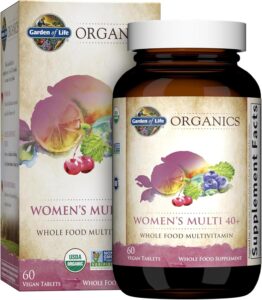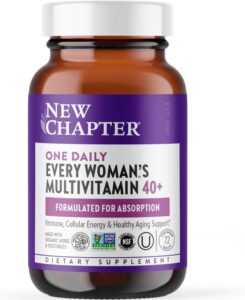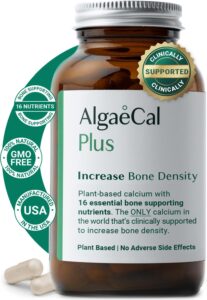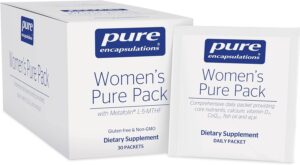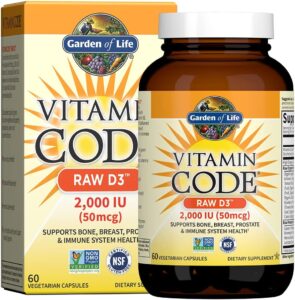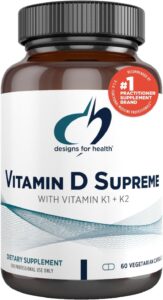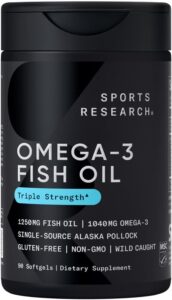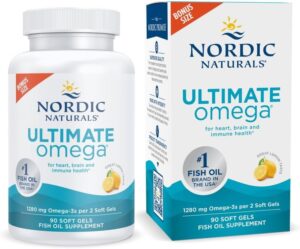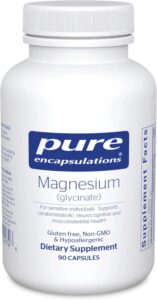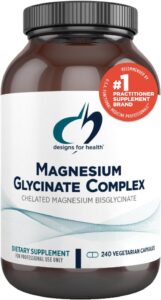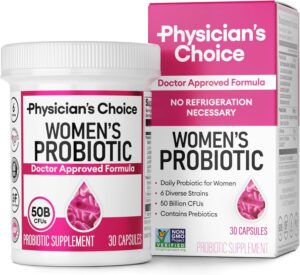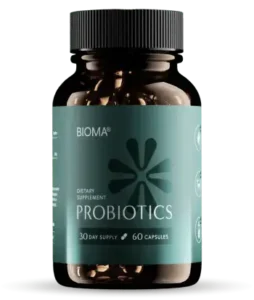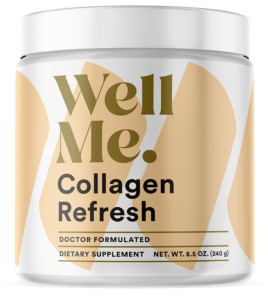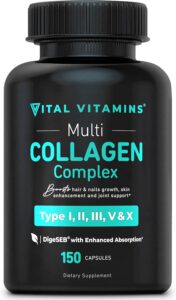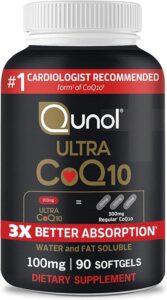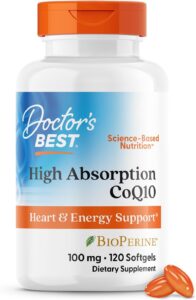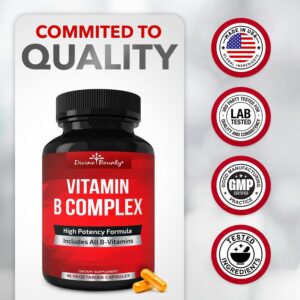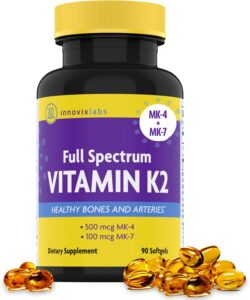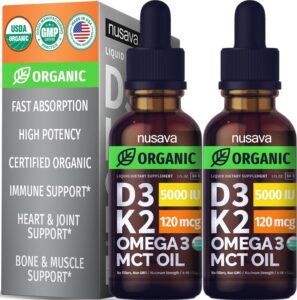*This post may contain affiliate links, meaning we may earn a commission at no extra cost to you based on honest recommendations.*
As women enter their 40s, their bodies undergo significant changes that can impact overall health and well-being. Hormonal shifts, decreased metabolism, and reduced nutrient absorption are just a few of the challenges that come with aging.
To combat these issues and maintain optimal health, many women turn to supplements.
Let’s explore the top 10 essential supplements for women over 40, discussing their benefits, how to choose the right products, and tips for incorporating them into your daily routine.

1. Multivitamin
A high-quality multivitamin is the cornerstone of any supplement regimen for women over 40. As we age, our bodies become less effective at absorbing nutrients from food, making a multivitamin an essential safeguard against deficiencies.
When choosing a multivitamin, look for a formula specifically designed for women in this age group, which typically includes higher amounts of B vitamins, vitamin D, and calcium.
One key factor to consider when selecting a multivitamin is the bioavailability of it’s ingredients. Products that contain natural, easily absorbable forms of nutrients are ideal.
For example, methylcobalamin (vitamin B12) is preferable to cyanocobalamin, and chelated minerals are better absorbed than their non-chelated counterparts.
These forms are more readily utilized by the body, ensuring you get the most benefit from your supplement.
To maximize the effectiveness of your multivitamin, take it with a meal that contains some healthy fats. This helps enhance the absorption of fat-soluble vitamins like A, D, E, and K.
Additionally, consider splitting your dose throughout the day to maintain steady nutrient levels in your system.
This approach can help prevent any potential digestive discomfort and confirm a more consistent supply of nutrients to your body.
2. Calcium
Calcium is crucial for maintaining strong bones and preventing osteoporosis, a condition that becomes increasingly common in women after menopause. While dairy products are a good source of calcium, many women find they need to supplement to meet their daily requirements, especially if they follow a dairy-free diet or have decreased absorption because of age-related factors.
When selecting a calcium supplement, choose one that also contains vitamin D, as this nutrient is essential for calcium absorption. Calcium citrate is often recommended over calcium carbonate, as it’s easier for the body to absorb, especially for people who have low stomach acid.
This is particularly important for older adults, as stomach acid production tends to decrease with age.
To maximize absorption and minimize the risk of side effects like constipation, take your calcium supplement in divided doses throughout the day, as opposed to all at once. For example, you might take 500mg with breakfast and another 500mg with dinner.
This approach improves absorption and reduces the likelihood of experiencing digestive discomfort.
It’s also worth noting that calcium absorption is influenced by other nutrients and factors. For instance, excessive intake of caffeine, alcohol, or sodium can interfere with calcium absorption.
On the other hand, vitamin K2 (which we’ll talk about later) can help confirm that calcium is directed to the bones where it’s needed most, as opposed to accumulating in soft tissues or arteries.
3. Vitamin D3
Vitamin D3, also known as the “sunshine vitamin,” is crucial for bone health, immune function, and mood regulation. As we age, our skin becomes less effective at producing vitamin D from sunlight, making supplementation even more important.
Many women over 40 are deficient in vitamin D, which can lead to a host of health issues, including increased risk of osteoporosis, weakened immune system, and even depression.
When choosing a vitamin D supplement, opt for D3 (cholecalciferol) as opposed to D2 (ergocalciferol). Vitamin D3 is the form naturally produced by our bodies when exposed to sunlight and is more effective at raising blood levels of vitamin D.
It’s also more stable and has a longer shelf life than D2.
The optimal dosage of vitamin D can vary widely depending on factors such as your current vitamin D levels, sun exposure, and overall health. Consider having your vitamin D levels tested to determine the suitable dosage for you.
Many experts recommend a daily intake of 1000-2000 IU for adults, but some people may need higher doses to achieve optimal levels.
Keep in mind that vitamin D is fat-soluble, meaning it’s best absorbed when taken with a meal containing some healthy fats. Consider pairing your vitamin D supplement with foods like avocado, nuts, or olive oil to enhance absorption.
Additionally, vitamin D works synergistically with other nutrients, particularly calcium and vitamin K2, to support bone health and overall well-being.
4. Omega-3 Fatty Acids
Omega-3 fatty acids, particularly EPA (eicosapentaenoic acid) and DHA (docosahexaenoic acid) found in fish oil, are essential for heart health, brain function, and reducing inflammation throughout the body. For women over 40, these nutrients can help support cognitive function, joint health, and even skin elasticity.
When selecting an omega-3 supplement, look for a high-quality fish oil that has been molecularly distilled to remove contaminants like mercury and PCBs. The product should clearly state the amounts of EPA and DHA per serving, with a combined total of at least 1000mg per day being a common recommendation for general health support.
If you’re vegetarian or vegan, algae-based omega-3 supplements are available. These provide DHA and sometimes EPA as well, making them a suitable choice to fish oil.
Regardless of the source, omega-3 supplements can sometimes cause a fishy aftertaste or “fish burps.” To minimize this, try taking your supplement with a meal or freezing the capsules before taking them.
It’s worth noting that the ratio of omega-3 to omega-6 fatty acids in your diet is important. While both are essential, the typical Western diet tends to be high in omega-6 and low in omega-3.
Supplementing with omega-3s can help balance this ratio, potentially reducing inflammation and supporting overall health.
For women over 40, the anti-inflammatory properties of omega-3s can be particularly useful for managing symptoms of perimenopause and menopause, such as hot flashes and mood swings. Additionally, these fatty acids play a crucial role in maintaining heart health, which becomes increasingly important as we age.
5. Magnesium
Magnesium is involved in over 300 enzymatic reactions in the body and is crucial for energy production, muscle and nerve function, and bone health. Many women over 40 are deficient in this important mineral, which can lead to symptoms like muscle cramps, insomnia, and anxiety.
Magnesium also plays a role in regulating blood sugar levels and supporting heart health, making it particularly important as we age.
When choosing a magnesium supplement, consider magnesium glycinate or magnesium citrate, which are well-absorbed forms that are less likely to cause digestive upset. Magnesium oxide, while common, is not as easily absorbed by the body and may have a laxative effect in higher doses.
Taking magnesium in the evening can help promote relaxation and better sleep quality. Start with a lower dose and gradually increase to avoid any potential digestive side effects.
The recommended daily allowance for magnesium is 320mg for women over 30, but some experts suggest that higher doses may be useful for certain people.
Keep in mind that magnesium works in balance with calcium in the body. While both are essential for bone health, they compete for absorption.
For this reason, it’s often recommended to take magnesium and calcium supplements at different times of the day.
Additionally, certain medications, such as proton pump inhibitors and diuretics, can interfere with magnesium absorption, so it’s important to talk about your supplement regimen with your healthcare provider.
For women over 40, magnesium can be particularly useful in managing symptoms of perimenopause and menopause. It may help reduce hot flashes, improve mood, and support better sleep.
Additionally, magnesium plays a crucial role in maintaining bone density, which becomes increasingly important as estrogen levels decline with age.
6. Probiotics
As we age, the balance of useful bacteria in our gut can become disrupted, leading to digestive issues and a weakened immune system. Probiotic supplements can help restore this balance, supporting digestive health, immune function, and even mood.
Emerging research also suggests that a healthy gut microbiome may play a role in reducing inflammation and supporting cognitive function.
Look for a probiotic supplement that contains a variety of strains, including Lactobacillus and Bifidobacterium species. These different strains offer various benefits and can work synergistically to support overall gut health.
Choose a product with at least 10 billion CFUs (colony-forming units) per serving, as this is generally considered an effective dose for maintaining gut health.
To confirm the probiotics reach your gut alive and ready to colonize, take them on an empty stomach with a glass of water. Some probiotic supplements are designed to be shelf-stable, while others need refrigeration.
Be sure to check the storage instructions on your product to maintain it’s potency.
It’s worth noting that probiotics work best when combined with a diet rich in prebiotics – the fibers that feed useful bacteria. Foods like garlic, onions, leeks, asparagus, and bananas are excellent sources of prebiotics.
Some probiotic supplements also include prebiotic fibers to enhance their effectiveness.
For women over 40, probiotics can be particularly useful in supporting vaginal health and urinary tract function. Certain strains, such as Lactobacillus rhamnosus and Lactobacillus reuteri, have been shown to help maintain a healthy vaginal microbiome and reduce the risk of urinary tract infections, which become more common as we age.
7. Collagen
Collagen is the most abundant protein in our bodies, providing structure to our skin, hair, nails, and joints. As we age, our natural collagen production decreases, leading to wrinkles, joint pain, and brittle nails.
Supplementing with collagen can help support skin elasticity, joint health, and overall vitality.
When choosing a collagen supplement, opt for hydrolyzed collagen peptides, which are easier for the body to absorb. These smaller protein fragments are more readily utilized by the body to support collagen synthesis.
Look for products sourced from grass-fed, pasture-raised animals or marine sources for the highest quality.
For best results, take your collagen supplement consistently and pair it with vitamin C-rich foods to enhance absorption and collagen synthesis. Vitamin C is a crucial cofactor in collagen production, so combining these nutrients can maximize the benefits.
You can easily add collagen powder to your morning coffee, smoothies, or even baked goods for a seamless addition to your daily routine.
Keep in mind that while collagen supplements can be useful, they work best as part of a comprehensive approach to skin and joint health. This includes protecting your skin from sun damage, staying hydrated, eating a balanced diet rich in antioxidants, and maintaining a healthy lifestyle.
For women over 40, collagen supplementation can be particularly useful in supporting skin elasticity and reducing the appearance of fine lines and wrinkles. Additionally, collagen may help reduce joint pain and stiffness, which can become more prevalent as we age.
Some studies have also suggested that collagen supplementation may support bone density, making it a valuable addition to a bone health regimen.
8. Coenzyme Q10 (CoQ10)
CoQ10 is a powerful antioxidant that plays a crucial role in energy production within our cells. As we age, our natural CoQ10 levels decline, which can lead to fatigue and a weakened immune system.
For women over 40, CoQ10 supplementation can support heart health, boost energy levels, and even help with migraines.
When selecting a CoQ10 supplement, choose the ubiquinol form, which is more easily absorbed by the body than ubiquinone. Ubiquinol is the active form of CoQ10 and needs less processing by the body, making it particularly useful for older adults whose ability to convert ubiquinone to ubiquinol may be diminished.
Take CoQ10 with a meal containing some healthy fats to enhance absorption. The typical dosage ranges from 100-200mg per day, but higher doses may be recommended for specific health conditions.
As with any supplement, it’s best to ask with a healthcare provider to determine the optimal dosage for your person needs.
It’s worth noting that certain medications, particularly statins used to lower cholesterol, can reduce CoQ10 levels in the body. If you’re taking statins, talk about CoQ10 supplementation with your healthcare provider, as it may help mitigate some of the side effects associated with these medications.
For women over 40, CoQ10 can be particularly useful in supporting cardiovascular health. It may help lower blood pressure, improve heart function, and reduce the risk of heart disease.
Additionally, CoQ10 has been shown to have potential benefits for skin health, potentially reducing the appearance of wrinkles and improving skin elasticity when applied topically or taken orally.
9. B-Complex Vitamins
B vitamins are essential for energy production, brain function, and hormone balance. As we age, our ability to absorb B vitamins from food can decrease, making supplementation important.
For women over 40, B vitamins can help support cognitive function, mood, and energy levels.
Look for a B-complex supplement that contains all eight B vitamins in their most bioavailable forms. For example, choose methylcobalamin for B12 and methylfolate for folate.
These active forms are more readily utilized by the body, especially for people with genetic variations that affect B vitamin metabolism.
Taking your B-complex supplement in the morning can help boost energy levels throughout the day. However, some people may find that B vitamins can interfere with sleep if taken too late in the day, so experiment to find the best timing for you.
If you’re taking person B vitamins, be sure to maintain a balance, as excessive intake of one B vitamin can sometimes mask deficiencies in others.
Keep in mind that certain B vitamins play specific roles that are particularly relevant for women over 40. For example:
- Vitamin B6 (pyridoxine) can help reduce symptoms of PMS and may support mood regulation during perimenopause and menopause.
- Vitamin B9 (folate) is crucial for cell division and DNA synthesis, and may help support cardiovascular health.
- Vitamin B12 (cobalamin) is essential for nerve function and the production of red blood cells. As we age, our ability to absorb B12 from food decreases, making supplementation particularly important.
For women over 40, a B-complex supplement can be particularly useful in supporting overall energy levels and cognitive function. B vitamins play a crucial role in neurotransmitter production, which can help support mood and mental clarity.
Additionally, adequate B vitamin intake may help reduce the risk of age-related cognitive decline and support cardiovascular health.
10. Vitamin K2
Vitamin K2 is often overlooked but plays a crucial role in bone and heart health. It helps direct calcium to the bones where it’s needed, as opposed to allowing it to accumulate in arteries and soft tissues.
For women over 40, vitamin K2 can be particularly useful in preventing osteoporosis and maintaining cardiovascular health.
When choosing a vitamin K2 supplement, look for the MK-7 form, which has a longer half-life in the body and is more effective than MK-4. MK-7 is derived from fermented soybeans (natto) and has been shown to stay active in the body for longer periods, providing more consistent support for bone and heart health.
Consider taking vitamin K2 along with your calcium and vitamin D supplements for optimal bone health support. The synergistic effect of these nutrients can enhance calcium utilization and bone mineralization.
A typical dosage of vitamin K2 (MK-7) ranges from 100-200 mcg per day, but as always, ask with a healthcare provider to determine the best dosage for your person needs.
Keep in mind that while vitamin K1 (found in leafy green vegetables) is important for blood clotting, vitamin K2 has distinct benefits for bone and cardiovascular health. While a healthy diet can provide some K2, particularly from fermented foods and certain animal products, supplementation can help confirm adequate intake.
For women over 40, vitamin K2 can be particularly useful in supporting bone density and reducing the risk of osteoporosis. As estrogen levels decline during menopause, the risk of bone loss increases, making K2 supplementation even more important.
Additionally, K2 may help reduce the risk of arterial calcification, supporting overall cardiovascular health as we age.
Frequently Asked Questions
What are the most important supplements for women over 40?
The most important supplements for women over 40 typically include a high-quality multivitamin, calcium with vitamin D, omega-3 fatty acids, and magnesium. However, person needs may vary based on diet, lifestyle, and health conditions.
How much calcium should a woman over 40 take daily?
The recommended daily intake of calcium for women over 40 is generally 1000-1200mg per day. This includes calcium from both dietary sources and supplements.
It’s best to split the dose throughout the day for optimal absorption.
Can supplements help with menopausal symptoms?
Certain supplements may help reduce menopausal symptoms. For example, omega-3 fatty acids and magnesium may help with mood swings and hot flashes, while vitamin D and calcium support bone health.
Always ask with a healthcare provider before starting any new supplement regimen.
Is it safe to take multiple supplements at once?
In general, it’s safe to take multiple supplements as long as you’re not exceeding recommended doses. However, some supplements can interact with each other or with medications.
It’s always best to ask with a healthcare provider or a registered dietitian to confirm your supplement regimen is safe and suitable for your person needs.
How long does it take to see benefits from taking supplements?
The time it takes to see benefits from supplements can vary widely depending on the specific nutrient, your initial levels, and your person body chemistry. Some effects may be noticeable within a few weeks, while others may take several months.
Consistency is key when it comes to supplementation.
Are there any supplements that can help with weight management after 40?
While no supplement can replace a healthy diet and regular exercise, some may support weight management efforts. For example, protein supplements can help maintain muscle mass, which is important for metabolism.
Additionally, fiber supplements may help with feelings of fullness.
Always mix supplements with a balanced diet and regular physical activity for best results.
Can supplements improve skin health for women over 40?
Certain supplements may support skin health for women over 40. Collagen peptides, for example, may help improve skin elasticity and hydration.
Omega-3 fatty acids and antioxidants like vitamin C and E can also support skin health by combating inflammation and oxidative stress.
How do I know if I’m deficient in certain vitamins or minerals?
The best way to determine if you’re deficient in certain vitamins or minerals is through blood tests ordered by your healthcare provider. Some common signs of nutrient deficiencies include fatigue, hair loss, brittle nails, and mood changes.
However, these symptoms can be caused by various factors, so it’s important to get a proper diagnosis.
Are there any supplements that can help with joint pain?
Several supplements may help with joint pain, particularly for women over 40. Glucosamine and chondroitin are popular for joint health, while omega-3 fatty acids can help reduce inflammation.
Collagen supplements may also support joint health.
As always, ask with a healthcare provider before starting any new supplement regimen for joint pain.
Can supplements interfere with prescription medications?
Yes, some supplements can interfere with prescription medications. For example, St. John’s Wort can interact with many medications, including antidepressants and birth control pills.
Vitamin K can interfere with blood thinners.
Always tell your healthcare provider about all supplements you’re taking to avoid potential interactions.
Key Takeaways
- A high-quality multivitamin forms the foundation of a supplement regimen for women over 40.
- Calcium and vitamin D3 are crucial for maintaining bone health as we age.
- Omega-3 fatty acids support heart and brain health, while magnesium aids in energy production and relaxation.
- Probiotics and collagen can support digestive health and skin elasticity, respectively.
- CoQ10, B-complex vitamins, and vitamin K2 round out the top 10 supplements, supporting energy production, cognitive function, and overall health.

